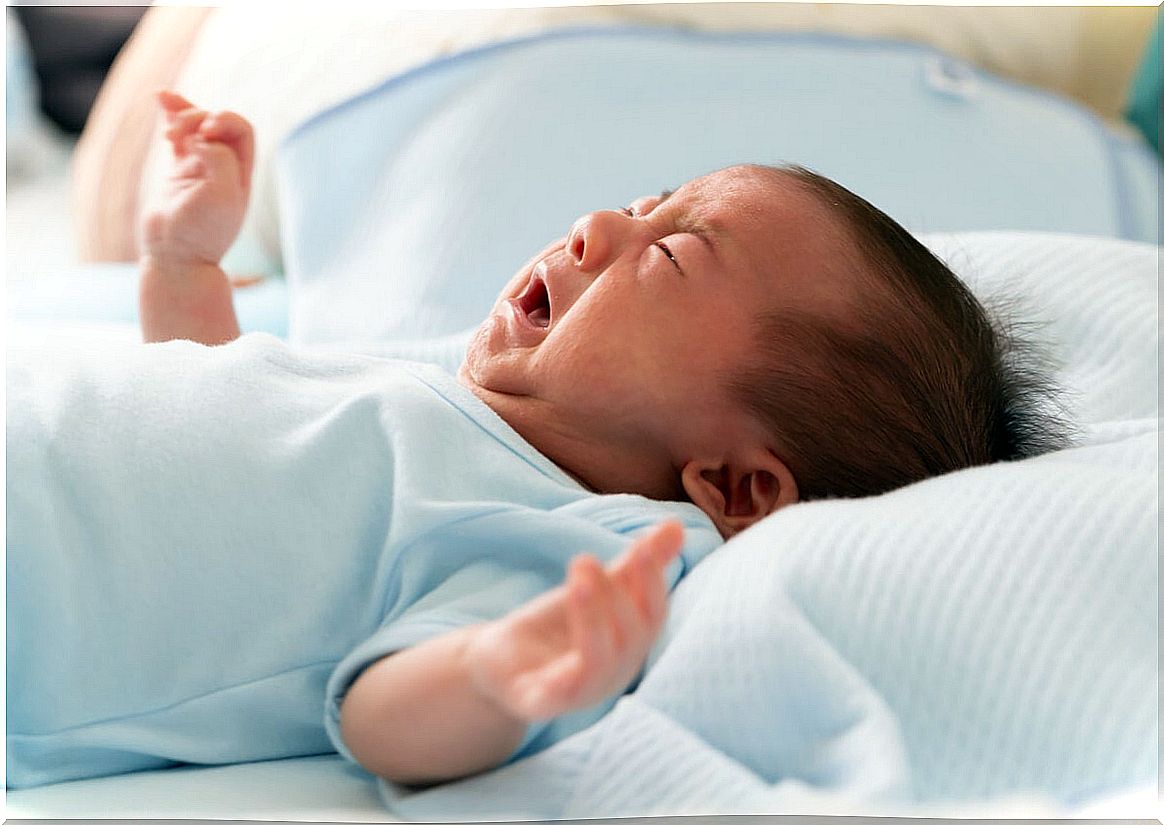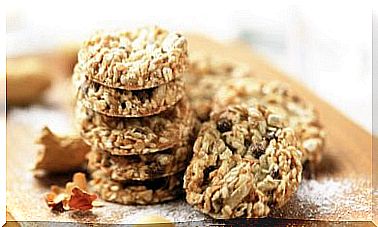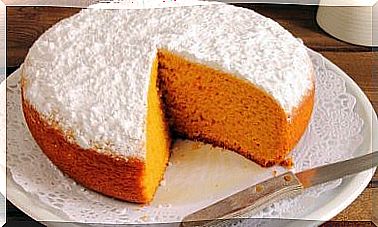Why Does Constipation Occur In Children And How To Relieve It?
Constipation in children, as in adults, is a common problem. It consists of the difficulty of defecation, which is the process by which we expel feces from the body.
Intestinal transit varies from one person to another. Similarly, it also changes based on age. For example, babies defecate more often than adults. However, in general, middle-aged children go to the bathroom once or twice a day.
Why is constipation common in children?
Constipation in children, as in adults, is defined as difficulty in passing stool. This causes stool to be retained in the intestine. In some cases it can consist of a constant feeling of not having enough bowel movements.
According to a study published in Professional Pharmacy, constipation in children is complex to define. This is because, as we pointed out before, the frequency of defecation varies depending on the age and on each person.
Babies, for example, tend to have more liquid stools and more frequent bowel movements. As they grow older and a diet similar to that of adults is introduced, the consistency varies and the number of daily defecations decreases.
The exact cause of constipation in children is unknown when an associated pathology is not detected. Hard, dry stools are known to accumulate in the colon. These move more slowly, which causes more water to be reabsorbed throughout the digestive tract. The more time passes, the more the stool hardens and the more difficult it is to pass.

Symptoms that can occur
Symptoms of constipation in children are highly variable. According to the professionals at the Mayo Clinic, there may be less than three bowel movements a week. Also, as we have pointed out, they are hard and dry stools.
This causes that, when trying to defecate, pain appears. In the same way, it is necessary to exert more force to achieve it. Feces, being so hard, can cause small wounds when evacuated. That is why in some cases blood appears.
The pain that occurs in constipation in children leads them not to want to go to the bathroom. The little one will try to avoid defecation so as not to feel pain. That is why many times it can be observed that he squeezes the buttocks or twists.
Causes of constipation in children
Constipation in children can have multiple causes. There are different factors that influence the consistency and type of stool. In the first place, the diet is decisive. When the diet does not contain enough vegetables or fruits, the stool is usually harder.
Similarly, any change in diet can induce constipation. It is frequent that it appears when solid foods begin to be included. They are more complex to digest and expel.
As in adults, the routine when going to the bathroom is very relevant. For example, it is common that when there is a trip, a stressful situation or even when they start going to school, constipation appears.
Another cause of constipation in children is fear. Pain from trying to have a bowel movement can cause them to try to avoid going to the bathroom. It is a vicious cycle that exacerbates the problem.
In the same way, as explained in Healthychildren , some medications and diseases can give rise to this pathology. For example, hypothyroidism or malformations of the digestive system. In the case of medications, it is an adverse effect of iron supplements and anticonvulsants.
How is constipation in children treated?
Constipation in children can lead to complications. Therefore, if it is a sustained or repeated situation, it is essential to treat it. However, it should not be done without first consulting with a pediatrician.
As explained in the National Institute of Diabetes and Digestive and Kidney Diseases , the doctor may recommend enemas or laxatives to relieve constipation in a timely manner. However, these approaches cannot be sustained indefinitely.
There are different types of laxatives depending on the characteristics of the table. Some of them do not have an immediate effect. In addition, they can lead to a feeling of fullness, flatulence and abdominal discomfort. Therefore, the use of these drugs must be supervised.
When to see a doctor
Constipation in children can resolve on its own. In fact, in most cases it is something specific and does not present complications. However, if this situation persists or is repeated frequently, consultation is essential.
In addition, there are a number of red flags that should be considered. For example, if the child has blood in the stool or weight loss. The same happens if fever and abdominal swelling appear.
In some cases, straining while trying to have a bowel movement can lead to rectal prolapse. It consists of part of the intestine exiting through the anus. It is also an indication of consultation.
Possible complications of constipation in children
Constipation in children can lead to complications. One of the most important at this age is for the infant to stop eating or avoid defecating at all costs.
Another possible complication is anal fissures. When the stools are very dry and hard, they cause wounds in the mucosa or skin of the anus when they are expelled. These increase pain and can be difficult to heal.
Encopresis consists of the repeated passage of stool onto clothing. It occurs in cases in which the retained fecal matter accumulates in the colon or rectum. Liquid stool begins to leak and is expelled involuntarily, due to overflow.

Prevention and recommendations
Treatment usually focuses on dietary measures and improving the child’s habits. Therefore, one of the basics is to increase the amount of fiber in the diet. To do this, you have to make the child eat more fruits and vegetables every day.
Similarly, it is essential that you drink plenty of water and exercise. Physical activity improves intestinal motility and prevents constipation in children. It is also important to create a routine for going to the bathroom.
This is part of education from birth. However, you have to be understanding. The little ones require patience and special attention. Therefore, if you are afraid to go to the bathroom or avoid this moment, you must stimulate the act through some entertainment or reward.
Many cases are motivated by an inadequate diet. It can also be a consequence of sedentary lifestyle or bad habits. That is why it is important that, at this time in life, they learn to have a varied and balanced diet.









